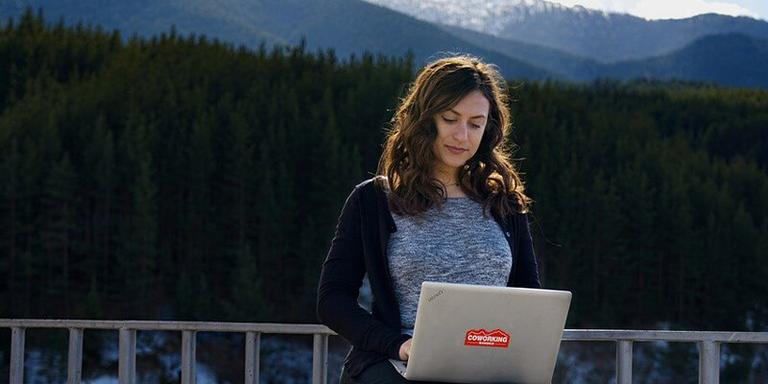
Published on: July 4, 2022
Making the Most of Digital Nomad Slack Communities
As a digital nomad, you’re used to spending time on the road, roaming from place to place, and making friends wherever you go. Of course, many people think nomad also means “alone.” Given you aren’t in one place for very long, it’s hard to put down roots and grow.
But thanks to the internet, it’s never been easier to connect with other digital nomads. And one great way to do this is through nomad Slack communities.
What Is a Slack Community?
A Slack community is similar to a Facebook group or Reddit forum (otherwise known as a subreddit). People interested in a specific topic gather together in a digital space to discuss, debate, and share information about it.
The defining feature of a Slack community, though, is that it may consist of multiple channels that discuss different subtopics. For example, if your company uses Slack, you can think of your Slack workspace as a community. Within that, you probably have different channels devoted to specific topics: the watercooler (for general banter), tech support (for technical glitches), or benefits (for information about the benefits package).
What Are the Benefits of Joining a Slack Community?
With so many other platforms and groups on said platforms, why would anyone want to join a Slack community?
Slack is often the go-to instant messaging platform for companies because of how it works. The ability to tag people and instantly notify them makes it more likely conversations will happen in real time.
Because so many companies use Slack for messaging, community members are more likely to be on Slack throughout the day (unlike other platforms), making it more likely they’ll respond to your message promptly.
Slack also makes it easier for you to collaborate with community members within the platform beyond plain text. You can share screenshots, files, and even recordings. And while you can do those things on other platforms, with Slack, you can also connect with people in real time via a Slack phone call or in a huddle. On other platforms, you likely have to go to a secondary platform to connect (like moving over to Zoom).
And of course, within your Slack community, you can share emojis and GIFs to better illustrate your point and add some fun to the discussion.
Why Join a Digital Nomad Slack Community
Being a digital nomad means a life on the road, but it doesn’t mean you should (or have to) go it alone. That’s where Slack communities for digital nomads come in.
Joining up with one or several nomad Slack communities can help you:
- Connect with employers looking to hire
- Get the lowdown on towns, accommodations, restaurants, and more
- Help you connect with other nomads to meet up with in real life
- Share safety, connectivity, and other tips
Which Digital Nomad Slack Communities to Join
There are tons of digital nomad Slack communities you can join. Here are a few suggestions to get you started.
RemotelyOne
RemotelyOne is one of the largest Slack communities for remote, nomad, and other distributed workers to meet up and build relationships. In addition to the Slack community, this group has a podcast with tips on remote life, an app that helps you meet up with other nomads, and other special events for members.
Nomads Talk
Nomads Talk is a Slack community that discusses the ins and outs of nomad life. The community has a hiring channel to help you connect with your next job, as well as channels to discuss transportation options, plan your next big adventure, and figure out where to eat and sleep while you’re in town.
Remote Work Slack (Hosted by Workfrom)
Remote Work Slack helps nomads create new connections among community members. The community runs live chats, discussions, and workshops to help you grow professionally. There’s also a Virtual Cafe, where you can turn on your video and cowork with other community members.
Free to Roam
One more great resource to help you navigate nomad life is Remote.co’s Q and A’s. Check it out for more great questions and answers from digital nomads about digital nomad life!
Learn More
By Conor McMahon | Categories: Work Remotely



